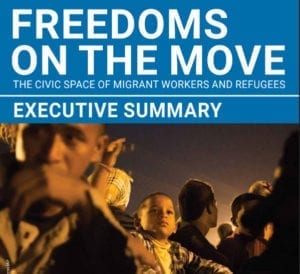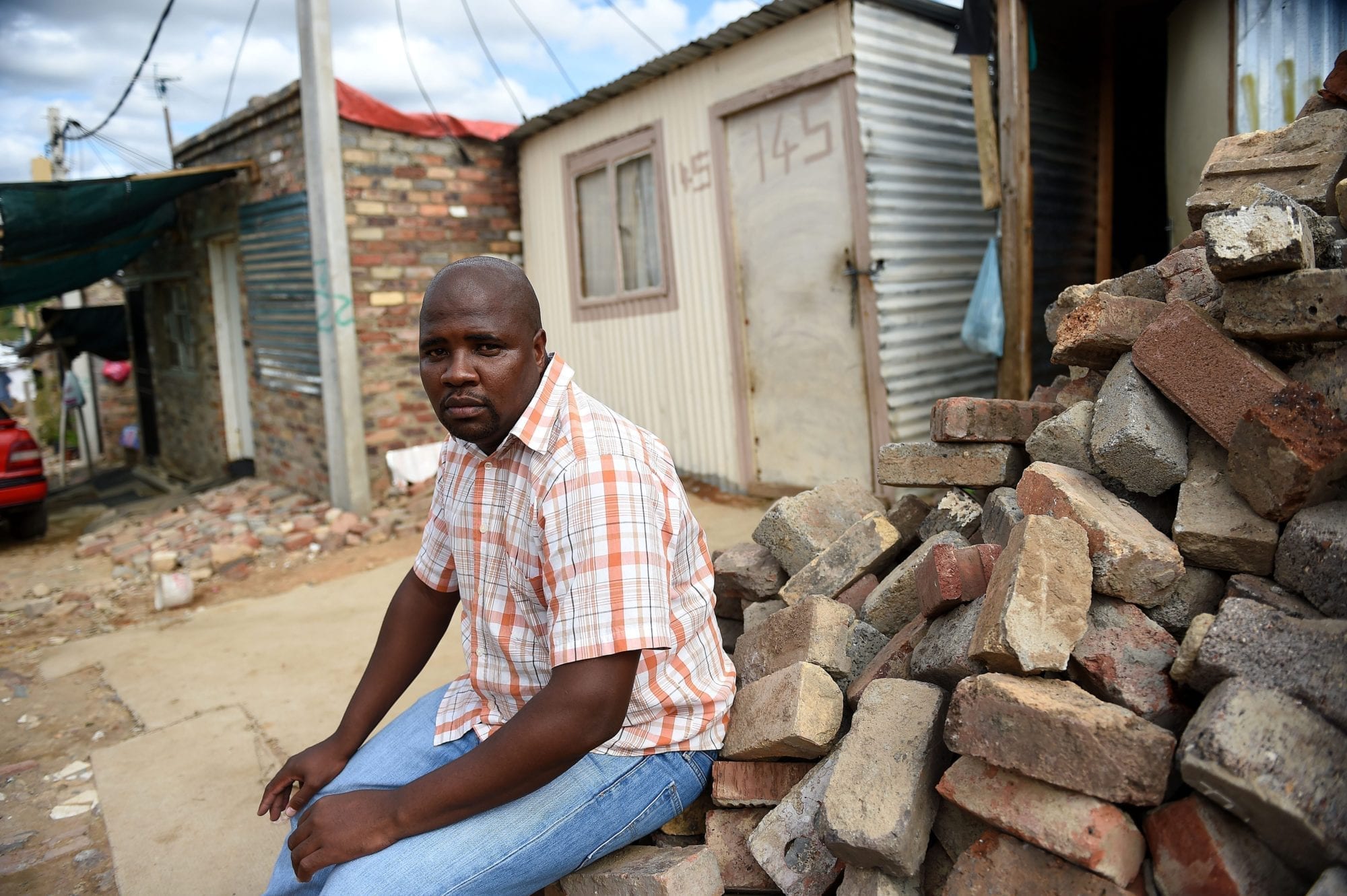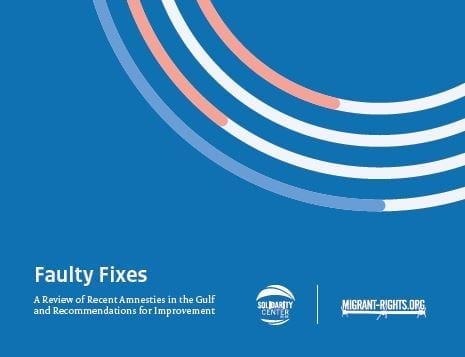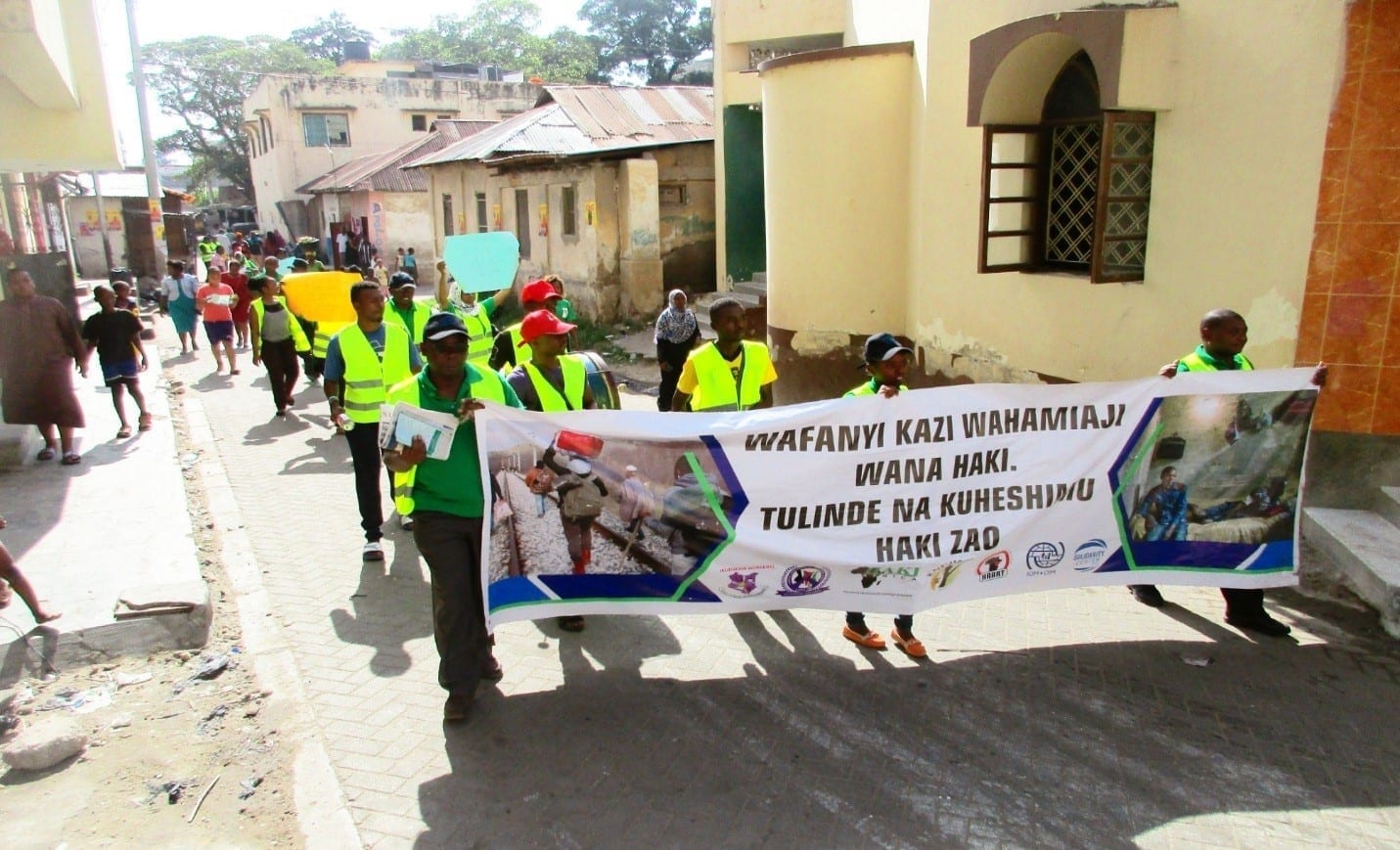As a migrant mine worker from Swaziland, Mduduzi Thabethe says he has fewer workplace rights than his South African co-workers. Although all mine workers pay the same amount into the health fund, migrant workers get inferior care and pensions are rare. “If you are a...
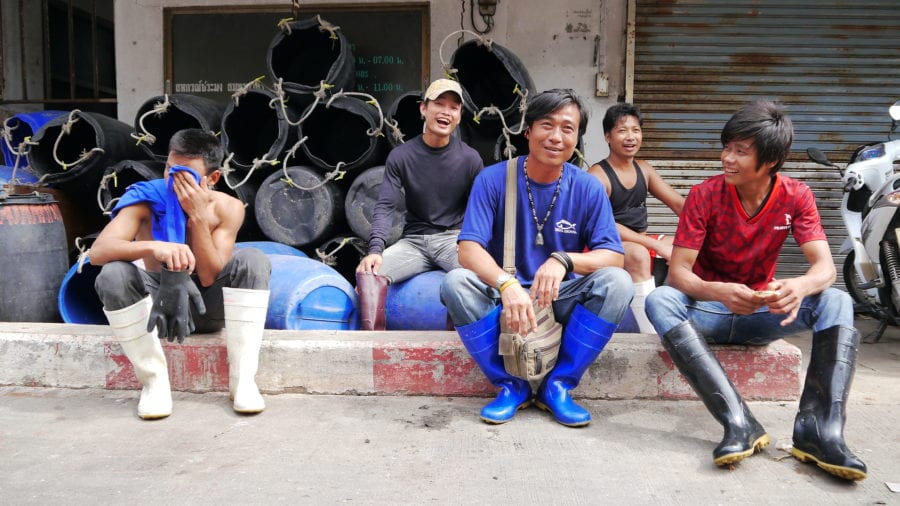
The Solidarity Center strives for rights for people on the move by ensuring migrant workers are fully able to exercise their workplace, social, economic and democratic rights. Solidarity Center/Jeanne Hallacy
Labor migration feeds the global economy. Hundreds of millions of migrant workers worldwide generate billions of dollars in global remittances. They are domestic workers, construction and agricultural workers, factory and service workers, teachers and professionals. Migrant workers often travel long distances due to a lack of decent work at home to support their families and build a better life. They frequently are denied the most basic human rights. For instance, most destination countries deny migrant workers the right to form unions, and explicitly exclude them from labor law protections, and women migrant workers are often subject to gender-based violence and harassment in their workplaces.
The Solidarity Center strives for worker rights for people on the move by ensuring migrant worker rights are a key part of the labor movement. We cultivate an understanding of how exploitative labor migration management schemes are a widespread means by which to undercut worker wages, create precarious work and pit workers against each other. And, in addressing these structural ills, we emphasize a response that understands the intersectionalities and identities that make migrant workers especially vulnerable. Our goal is to ensure that migrant workers are fully able to exercise their workplace rights, as well as their social, economic and democratic rights.
We also focus on the creation of decent work in home countries so workers can migrate by choice and not due to economic coercion. We recognize that migration is not caused by a single factor that “pushes” workers to migrate. In doing so, we bring our unique worker rights voice more broadly by emphasizing that everyone deserves dignity at work regardless of status—climate migrants, economic migrants and conflict refugees. We work to achieve this through programs that focus on union organizing and collective bargaining, policy advocacy, access to justice, safe migration and, more broadly, the ability to exercise fundamental freedoms as democratic participants.
Find out more
- A Pandemic Reset for Migrant Workers, Neha Misra and Shannon Lederer
- How COVID-19 Affects Women in Migration, Carolina Gottardo and Paola Cyment
Freedoms on the Move, a 2019 report by Solidarity Center and CIVICUS, is an urgent call to action for unions and other civil society groups to include migrant workers and refugees in advancing civic rights.
Why Amnesty Does Not Solve Gulf Labor, Kefala Issues
In Gulf Cooperation Council countries—Bahrain, Kuwait, Oman, Qatar, Saudi Arabia and the United Arab Emirates—amnesties for workers in irregular status are frequently declared, indicating that irregularity is a common and recurring phenomenon within the governing...
Kenya, Kuwait Unions Sign Migrant Workers’ Agreement
The Central Organization of Trade Unions-Kenya (COTU-K) and the Kuwait Trade Union Federation (KTUF) signed a cooperative agreement last week in Kuwait City, formalizing the federations’ effort to jointly address issues affecting workers who migrate from Kenya to...
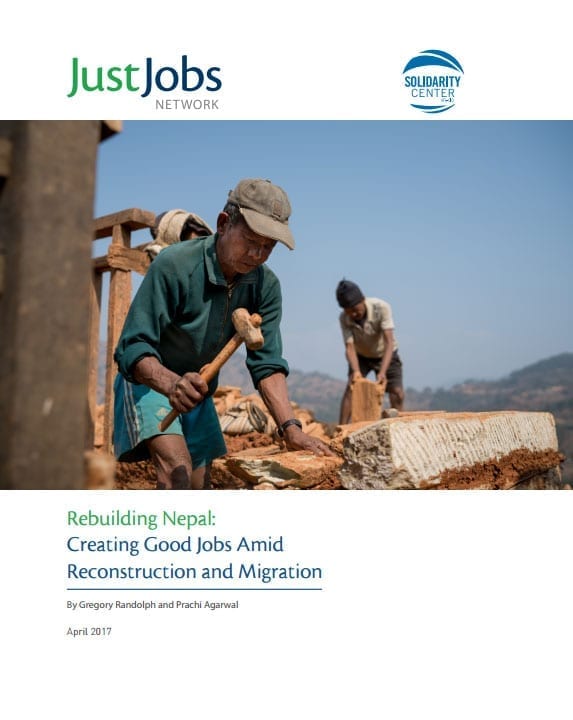
Rebuilding Nepal: Creating Good Jobs Amid Reconstruction and Migration
This JustJobs and Solidarity Center report asserts that post-earthquake Nepal is at a unique moment when it can leverage the reconstruction process to protect worker rights and ensure that migration out of the country for work is a choice, not a necessity....
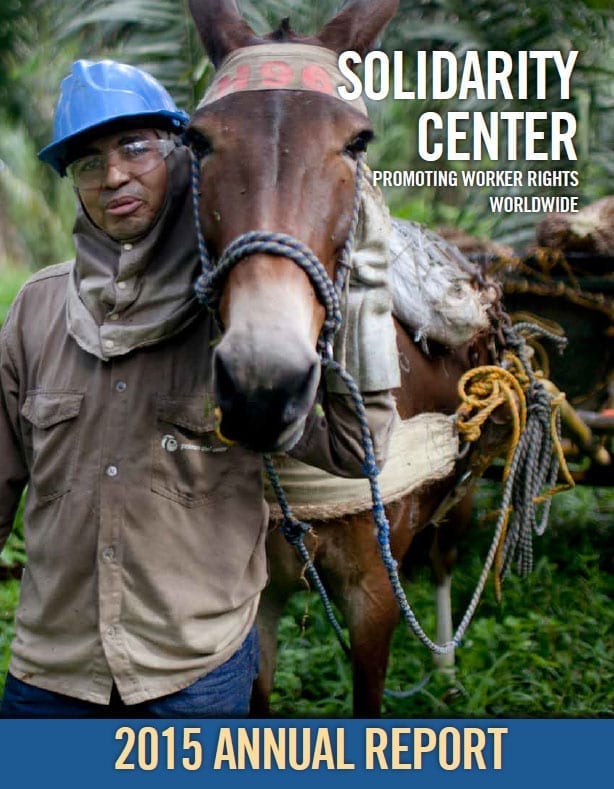
Annual Report 2015
Download here.

Workers in Post-Civil War Jaffna
Although Sri Lanka's labor code sets the minimum wage, the maximum number of work hours per day and work days per week, and establishes rules around overtime and benefits, many employers in Jaffna, the country’s northern province, are flaunting the statutes. The vast...
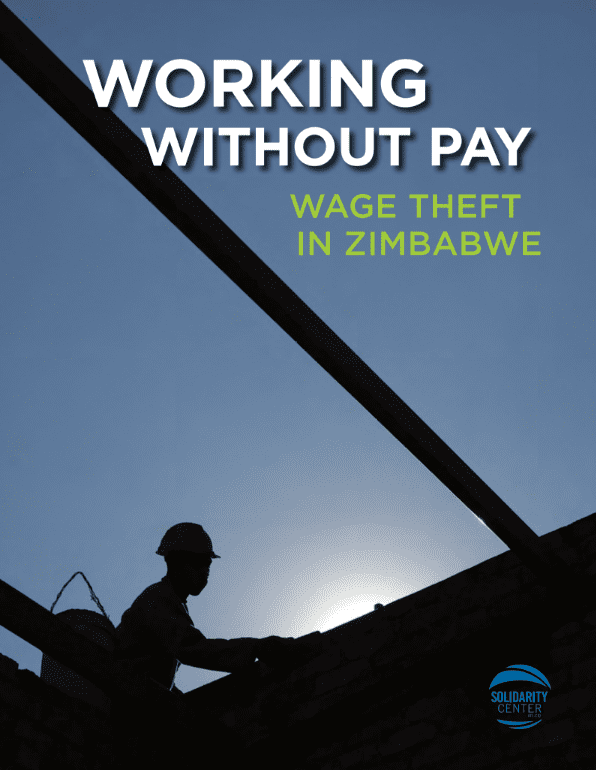
Working Without Pay: Wage Theft in Zimbabwe
Wage theft is widespread throughout the the public- and private-sectors, with Zimbabweans working months without a paycheck. Based on surveys at 442 companies, the report documents the vast scope of wage theft; outlines the responsibilities of the state under...
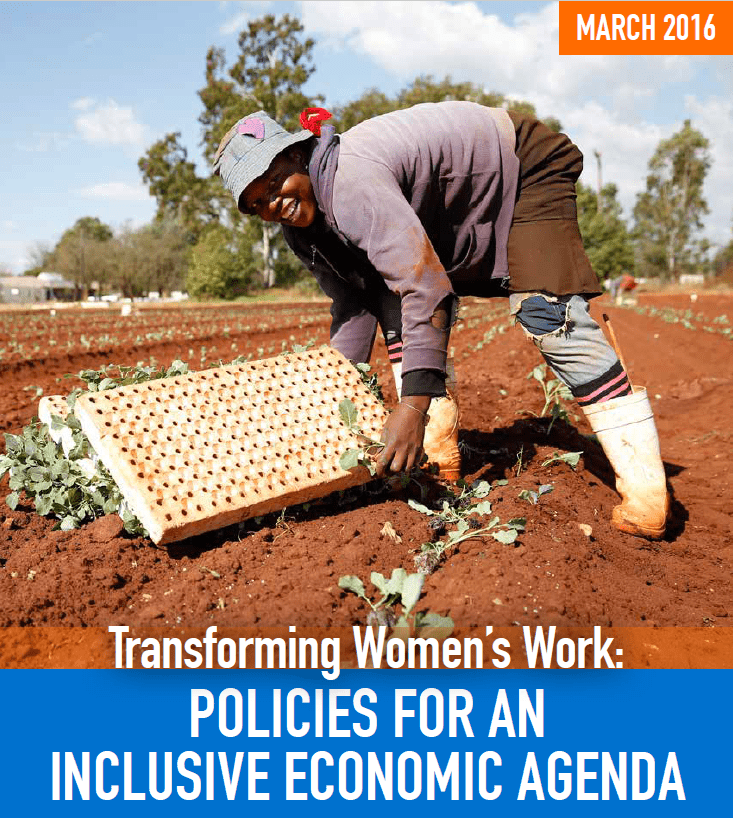
Transforming Women’s Work: Policies for an Inclusive Economic Agenda
Convening experts from the AFL-CIO, the Rutgers University Center for Women’s Global Leadership and the Solidarity Center, this report examines how to shift governments' policy priorities, create an enabling environment for social organizing and transform women’s...
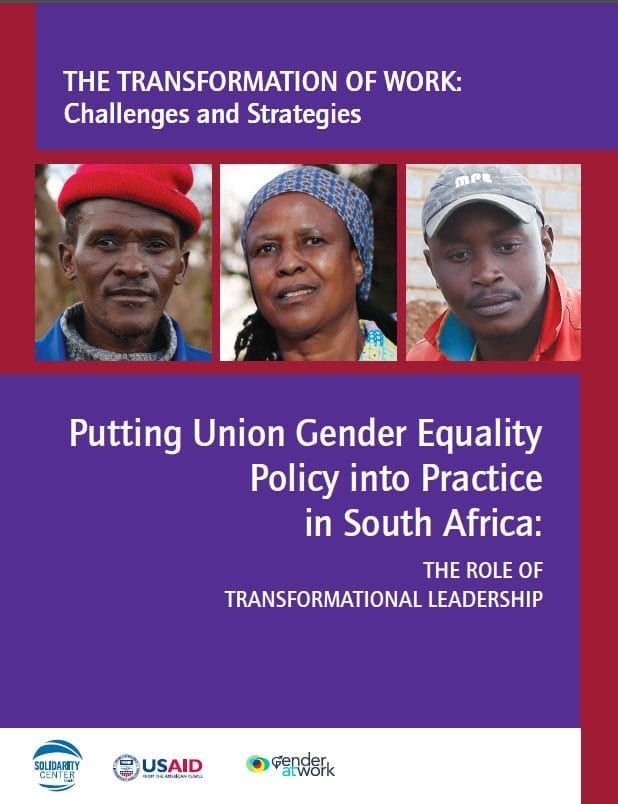
Putting Union Gender Equality Policy into Practice in South Africa
Unions are key drivers advancing gender equality. Yet in many countries around the world, there is a disconnect between labor union policy and practice in transforming gender inequalities within trade unions. Through the lens of the South African union movement, this...

